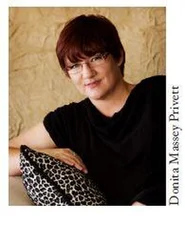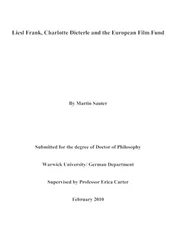Frank Tallis - Death And The Maiden
Здесь есть возможность читать онлайн «Frank Tallis - Death And The Maiden» весь текст электронной книги совершенно бесплатно (целиком полную версию без сокращений). В некоторых случаях можно слушать аудио, скачать через торрент в формате fb2 и присутствует краткое содержание. Жанр: Исторический детектив, на английском языке. Описание произведения, (предисловие) а так же отзывы посетителей доступны на портале библиотеки ЛибКат.
- Название:Death And The Maiden
- Автор:
- Жанр:
- Год:неизвестен
- ISBN:нет данных
- Рейтинг книги:5 / 5. Голосов: 1
-
Избранное:Добавить в избранное
- Отзывы:
-
Ваша оценка:
- 100
- 1
- 2
- 3
- 4
- 5
Death And The Maiden: краткое содержание, описание и аннотация
Предлагаем к чтению аннотацию, описание, краткое содержание или предисловие (зависит от того, что написал сам автор книги «Death And The Maiden»). Если вы не нашли необходимую информацию о книге — напишите в комментариях, мы постараемся отыскать её.
Death And The Maiden — читать онлайн бесплатно полную книгу (весь текст) целиком
Ниже представлен текст книги, разбитый по страницам. Система сохранения места последней прочитанной страницы, позволяет с удобством читать онлайн бесплатно книгу «Death And The Maiden», без необходимости каждый раз заново искать на чём Вы остановились. Поставьте закладку, и сможете в любой момент перейти на страницу, на которой закончили чтение.
Интервал:
Закладка:
Amsel shrugged. ‘I formed the impression that she had killed herself.’
‘Do you think that is what happened, then? Do you think she took her own life?’
The diva lifted her hands, her expression showing exasperation. ‘I don’t know. And what does it matter what I think? My opinion on this matter is surely of little importance. I didn’t know her well enough to pass comment.’ Then, quite suddenly, Amsel’s lower lip began to tremble and she produced a loud sob, an anguished spasm of grief that might easily have reached the upper balcony of the world’s largest opera houses. The sob was so theatrical that Liebermann could hardly accept it as sincere, even though tears had begun to course down Amsel’s cheeks.
‘Madam,’ said Rheinhardt, offering her a starched white handkerchief.
‘Thank you, Inspector. I’m sorry.’ She dabbed at her eyes and spoke between mighty heaves of her chest. ‘We were not friends — quite the contrary — even so — it is a terrible thing … a terrible, terrible thing … One would … one wouldn’t wish such a thing to happen to anyone.’
Liebermann glanced at Rheinhardt to make sure that he had registered the slip.
The inspector leaned forward and asked softly, ‘Where were you on Monday evening, Fraulein Amsel?’
‘Monday evening?’
‘It was very foggy.’
‘Oh, yes, Monday evening. I was at home, entertaining some friends.’
‘Who?’
‘Herr Eder and his wife, Herr Brunn … old friends. I sang for them after supper.’
‘And what time did they leave?’
‘Oh, I can’t remember exactly.’
‘Early? Late?’
‘About ten o’clock.’
Rheinhardt nodded.
Amsel mopped up the last of her tears and held the handkerchief out, still neatly compressed, for Rheinhardt to take.
‘You can keep it,’ he said.
It was early afternoon when Rheinhardt and Liebermann finally left the opera house. In addition to interviewing Arianne Amsel, they had interviewed the soprano Bertha Forster-Lauterer, the tenor Leo Slezak, and Rosenkrantz’s Czech voice coach Herr Janda. All confirmed that Rosenkrantz had demonstrated no signs of significant mental anguish in the months preceding her death. There was also unanimity concerning Amsel, whose resentment of Rosenkrantz’s success was judged to run deep, even by opera house standards.
Rheinhardt and Liebermann retired to the Cafe Mozart where they discussed all that had transpired over coffee and pastries. Preliminary remarks and observations were succeeded by a lengthy hiatus during which the two men were absorbed by their own private thoughts. In due course, Liebermann lit a cigar and signalled his readiness to share his conclusions.
‘Very interesting,’ he said, still only half extricated from the inner world.
‘Arianne Amsel?’ Rheinardt queried.
‘All those tears, all that remembering of Rosenkrantz in her prayers … and then her splendid and very revealing verbal slip! She must have spent the greater part of the last two years wishing Rosenkrantz dead.’
‘ Wishing Rosenkrantz dead, yes,’ said Rheinhardt. ‘But would she have acted on those wishes? Would she have plotted her rival’s destruction?’
‘It must have been difficult to bear, the humiliation, her decline in popularity.’ Liebermann smiled knowingly. ‘And they are hot-blooded creatures, these opera singers. I was once told of an incident that occurred in a provincial Italian theatre, near Naples, I believe. An ageing tenor was so mortified by the ovation his colleague received after performing a bravura aria that he stabbed the younger man in the back as he took his bow.’
‘Italians,’ grumbled Rheinhardt wearily. Then, finishing the dregs of his coffee, he said, ‘I suppose you must be getting along to the hospital now.’
Liebermann shrugged. ‘Not necessarily. Where does Schneider live?’
11
Amelia Lydgate had come from London to Vienna to study medicine at the university, where she was now enrolled as a student — one of only a handful of women. The prevailing view among the majority of her teachers was that medicine should be an exclusively male preserve, and consequently Amelia encountered prejudice, in one form or another, almost every day; however, she was undaunted by the dismissive remarks directed at her. The ignorance of others amounted to a mild irritation but nothing more, as it was in her nature to approach everything in life with an attitude of rational detachment. Moreover, such outmoded thinking was not ubiquitous. Indeed, she had made the acquaintance of some notable dissenters. Landsteiner, the man who had discovered blood groups, had taken a personal interest in her research, and her former doctor, Max Liebermann, had become — as much as social convention allowed — a close friend.
The public lecture that she was attending had been organised by the Socialist Education Alliance in cooperation with the General Austrian Women’s Association. Outside the small hall a poster announced that Frau Flora Eberhardt of the Society for Women’s Extended Education would be delivering a talk on the subject of ‘Equality and the marriage problem’.
Amelia was seated at the end of a row of chairs approximately halfway down the central aisle. The hall was somewhat austere. A faded portrait of the emperor hung above the entrance but there was little else to enliven the drab interior. A cold, persistent draught stirred the hem of Amelia’s petticoats.
Frau Eberhardt was a large woman with broad shoulders and wide hips, all comfortably accommodated in the loose folds of a blue and white reform kaftan. She had evidently dispensed with her corset. There was nothing evangelical about her delivery. She addressed the audience with measured, persuasive oratory.
Amelia noticed that the young woman sitting across the aisle was balancing a copy of Mantegazza’s The Physiology of Woman on her lap. The young woman had also crossed her feet at the ankles, something rarely seen in polite circles.
Frau Eberhardt had begun by setting out her agenda for change. She demanded the complete revocation of Austrian civil laws that permitted the exercise of patriarchal authority within the institution of marriage. According to existing statutes, a husband was entitled to forbid his wife to take certain jobs. A wife had no right to determine where her family should live, this being the husband’s privilege and, unless a prior legal contract had been signed to the contrary, a husband had absolute power to administer his wife’s property. Frau Eberhardt deemed all of these things unacceptable in a civilised society. She called for the abolition of all marriages where one party was a young girl and the other a significantly older man. Such marriages were, she maintained, almost invariably arranged to the financial advantage of the bride’s family. Thus, they might be legitimately described as a form of prostitution.
Summing up her position, she concluded that the economic independence of women was the first condition of a free marriage.
The speaker received a round of applause, led enthusiastically by the young woman sitting opposite Amelia.
The second part of Frau Eberhardt’s lecture was even more controversial than the first.
‘To demand economic equality is all well and good,’ proclaimed Frau Eberhardt. ‘But this will achieve nothing in the absence of sexual equality.’
There was unrest in some quarters of the audience, mutters and the rustle of silk.
‘It is the opinion of many leading gynaecologists,’ Frau Eberhardt continued, undaunted, ‘that the female of the species is sexually anaesthetic , that is to say, not troubled by erotic feelings. Other, more enlightened commentators have suggested that such evidence as exists for this opinion might be accounted for by cultural factors. Young women are forced to affect modesty and deny their instincts because of social expectations. Although this is a very plausible hypothesis, it has found no sympathy among the leading lights of the medical community. No less an authority than the late Professor Krafft-Ebing asserted that women have but a shallow interest in sexual activity because of their biology. He tells us in his writings that if she — the female of the species — were not passive and submissive,’ at this point Frau Eberhardt picked up a book from the lectern and read, ‘“the whole world would be a bordello, and marriage and the family unthinkable.”’
Читать дальшеИнтервал:
Закладка:
Похожие книги на «Death And The Maiden»
Представляем Вашему вниманию похожие книги на «Death And The Maiden» списком для выбора. Мы отобрали схожую по названию и смыслу литературу в надежде предоставить читателям больше вариантов отыскать новые, интересные, ещё непрочитанные произведения.
Обсуждение, отзывы о книге «Death And The Maiden» и просто собственные мнения читателей. Оставьте ваши комментарии, напишите, что Вы думаете о произведении, его смысле или главных героях. Укажите что конкретно понравилось, а что нет, и почему Вы так считаете.












